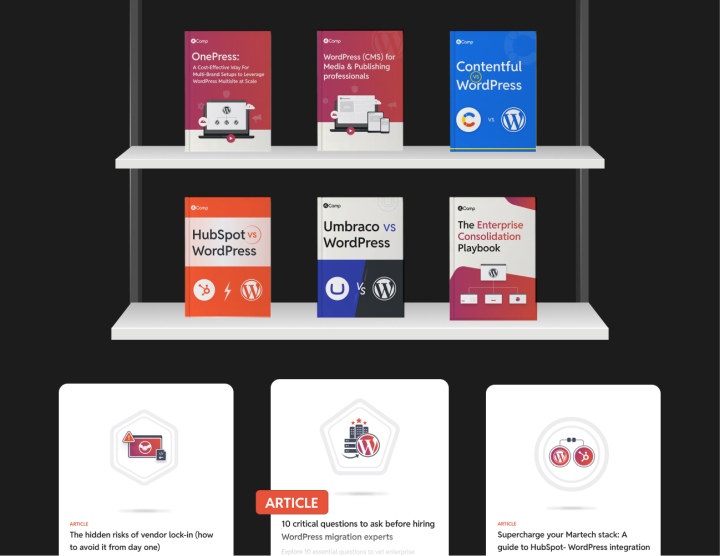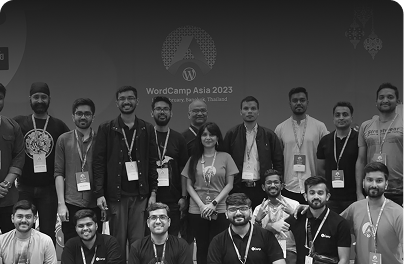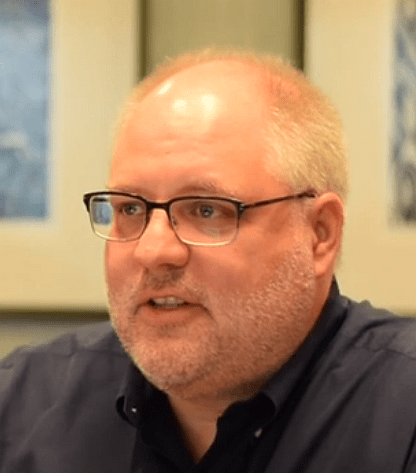Architect your enterprise open DXP with WordPress
Every DXP starts with a CMS. Build yours on WordPress as the foundation of your digital experience platform — enjoy freedom from monolithic lock-in, the agility of composable, and a foundation that’s open and proven.
Is WordPress right as your DXP?
Assess your digital experience strategy and discover how WordPress can serve as the foundation for a scalable, flexible DXP. Get up to 20 hours of free scoping.
The DXP dilemma: Monoliths vs. Proprietary DXPs
If you’ve been around the DXP block, you’re already familiar with messy monoliths and composable conundrums.
Monolithic DXPs
The “all-in-one promise”
CMS, personalization, analytics, commerce, and everything you need, bundled together.
The reality
Slow to deploy, expensive to license, and rigid to change, customize, and extend.
Vendor lock-in
You’re tied to a roadmap and feature set that may not match your evolving business needs. Gartner predicts that by 2026, 70% of enterprises will be looking to shift away from monoliths to composable DXPs (up from 50% in 2023).
Composable DXPs
The “freedom” promise
Select the best solutions to serve the different parts of your digital journey: a “DIY” DXP.
The reality
Most of your budget is allocated to connecting and maintaining these various solutions. Gartner found that 85% of the effort and cost in a DXP program goes into integrations, connecting internal and external systems, even the platform’s own built-in capabilities.
Feature bloat
Vendors keep expanding their suites to cover more “DXP ground,” leaving you with bloated systems that overlap, are harder to maintain, and slow to evolve.
The open DXP solution:
A foundation you own
No CMS lock-in
Your “core” content layer stays open-source and portable, even as you swap vendors around it. Unlike typical composable DXPs, the foundation of your digital experience remains in your control. So you aren’t looking at any vendor lock-in.
Reduced integration overhead
Mature APIs, REST WPI and GraphQL support, and a massive ecosystem of connectors for CDPs, DAMs, analytics, and commerce, lowering integration costs and speeding time-to-market.
Future-proof architecture
Swap or upgrade solutions as needs evolve without rebuilding the CMS core — lasting agility. WordPress’s open-source nature and its decades-old history serve as proof.
Lower total cost of ownership
Budgets go into innovation (and not CMS licenses or vendor bundles), reducing spend across the DXP lifecycle. Forrester’s TEI study found enterprises on WordPress VIP achieved 415% ROI, 40% efficiency gains from ease of use and maintenance, and a 45% cut in development costs.
Faster adoption
The Gutenberg block editor is easy for content teams, offering a familiar dashboard for both technical and non-technical teams. Additionally, the developer ecosystem is vast, allowing teams to get productive immediately..
Enterprise-scale talent pool
With the largest global network of developers, agencies, and partners in the CMS space, you can scale initiatives easily and affordably.
Map your enterprise DXP strategy with 20 hours of free scoping
Learn how we help enterprises like yours integrate, orchestrate, and scale WordPress as the CMS (and the core) of their digital experience stack. Get up to 20 hours of free scoping.
WordPress DXP competitive landscape
Most enterprises face the same decision: stick with a proprietary vendor suite or anchor their digital experience platform on an open, extensible CMS. The choice ultimately comes down to ownership, total cost of ownership, and future-proofing.
Proprietary DXPs
Your digital roadmap is effectively leased from the vendor. Their priorities, release cycles, and product decisions dictate what you can (and can’t) do, and could often misalign with your evolving business needs.
Open DXP (WordPress)
With WordPress, your DXP core (the CMS!) is open-source and portable, so your content layer is never locked away. You decide what to build, where to innovate, and which solutions to bring into your stack. Your roadmap is truly yours: flexible, future-proof, and free from vendor lock-in.
The rtCamp architecture method
Strategy and consulting
You get clarity before you commit. We help you evaluate whether WordPress is the right core for your DXP by looking at your digital maturity, goals, and challenges. From there, you’ll have a roadmap that aligns technology, content, and customer experience strategies, so your digital investments deliver business outcomes.
Integration and orchestration
All your digital experiment solutions finally work together. We connect WordPress with your CRM, marketing automation, commerce, analytics, and customer platforms, so your entire stack runs as one seamless DXP.
Performance, security, and scalability
You get the peace of mind that your platform won’t just perform, it will scale. We optimize WordPress for enterprise-grade performance, reliability, and security, building the infrastructure, compliance, and governance you need. With hosting standards such as SOC 2, GDPR, and FedRAMP covered by most enterprise wordpress hosts, your DXP core meets enterprise requirements while still providing the flexibility and agility of open source..
Architecture and implementation
You move from strategy to execution with confidence. We design a scalable WordPress-based architecture for your enterprise, complete with the integrations, workflows, and governance frameworks you need to operate at scale and complexity
Architecting your WordPress DXP
A modern DXP on WordPress combines scalable hosting, security, multisite governance, and integrations with CRM, DAM, and analytics. It streamlines workflows, ensures compliance, and includes consent management to protect user privacy while enabling personalized, connected experiences.
Personalization and omnichannel experience
You give customers what they need, when they need it, and personalization that feels truly one-to-one. By connecting WordPress with your personalization platform, you deliver context-aware, omnichannel experiences that evolve with every step of their journey.
Evaluate WordPress for your enterprise DXP
Our experts help you determine if WordPress is the right foundation for your digital experience platform and map out the roadmap. Get up to 20 hours of free scoping.
Trust and confidence
built through a track record of success
15+
years of enterprise IT experience
200+
rtCampers for any scale & scope
300+
successful WordPress migrations
20 hours of free discovery: Get clarity on the scope and complexity of your project
Explore WordPress as your DXP core
Discover how WordPress can power your digital experience stack (from strategy to execution) in our comprehensive handbook.

WordPress as a DXP services FAQs
Get answers to some of the most frequently asked questions about WordPress DXP
An open DXP is a digital experience platform built on open technologies, for example, using WordPress as the CMS. Unlike proprietary suites, it avoids vendor lock-in, giving your teams the freedom to choose the best solutions to serve the various parts of your digital journey
Yes, WordPress can serve as the open, flexible core of a modern, composable DXP. Its CMS at the center orchestrates personalization engines, analytics, commerce tools, and more, creating a full-featured, enterprise-ready digital experience platform.
Traditional DXPs are often monolithic, expensive, and rigid. WordPress provides a truly open and composable foundation for a DXP, allowing you to integrate only the digital experience solutions you need, retain complete control over your digital experience roadmap, and scale with confidence.
WordPress is both. That’s how it differentiates itself from all the other major competitors (save for Drupal, but it has other lock-ins).
WordPress is inherently composable. You can integrate best-of-breed solutions (CRMs, CDPs, analytics, commerce platforms, etc.) for your DXP. WordPress doesn’t force you into a rigid “all-in-one” monolithic solution. Also, unlike most DIY DXP composable stacks powered by other CMSs, it avoids integration complexity and overlapping features.
Very easy. WordPress supports official integrations for most enterprise systems (CRM, CDP, analytics, commerce). And if a custom integration is needed, it’s straightforward to build, extend, and maintain thanks to WordPress’s open architecture and large developer ecosystem.
A CMS (Content Management System) manages content creation, storage, and publishing. A DXP (Digital Experience Platform) is broader. It combines content, personalization, analytics, commerce, and omnichannel delivery to create seamless digital experiences. A CMS like WordPress can act as the core of a DXP, orchestrating these capabilities.
Absolutely. WordPress’s API-friendly architecture enables you to deliver content to websites, mobile apps, headless frontends, and other digital touchpoints, ensuring consistent and personalized customer experiences.
Enterprises report a 415% ROI when using WordPress VIP as their CMS — savings driven by open-source licensing, predictable upgrades, and reduced integration overhead. You can see how easily this extends to DXP setups, where the same flexibility and interoperability enable organizations to unify marketing, commerce, and analytics into a single, seamless experience layer.
Enterprises can reallocate budget from licensing and patchwork fixes to innovation, accelerate time-to-market for digital experiences, and scale initiatives without vendor constraints.
Additionally, WordPress’s vast global talent pool makes it easy to find skilled partners to expand and optimize your DXP. At the same time, manageable maintenance ensures your platform remains stable, secure, and future-proof.
Yes. WordPress’s open, API-first architecture lets you adapt, extend, or replace solutions as business needs evolve — whether it’s adding new channels, upgrading personalization engines, or integrating emerging technologies. Your DXP can grow and innovate without rebuilding the CMS foundation, ensuring long-term agility and resilience.












